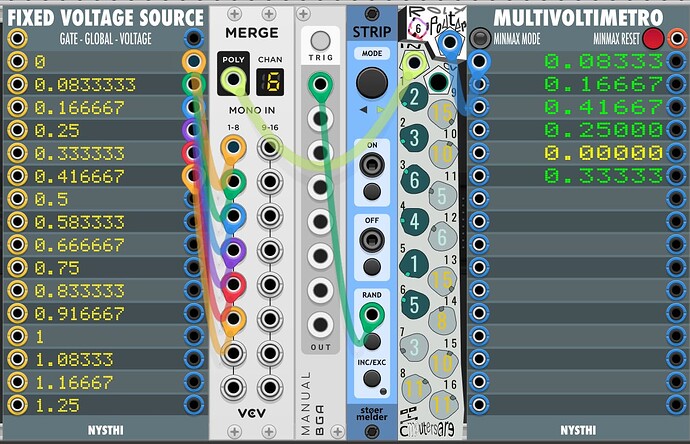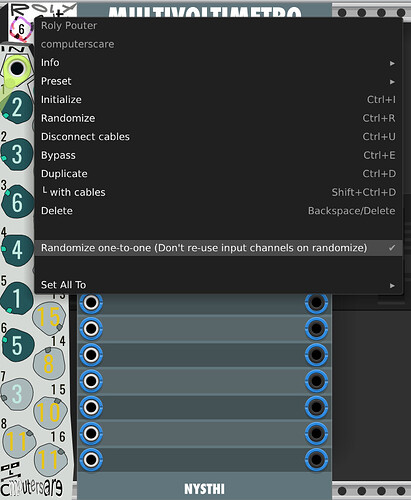Does one exist yet? By this I mean take a polyphonic signal with say, 8 channels, give it a trigger pulse, and then all 8 original CVs are unchanged except they are assigned to different channels. Re-routed, but not simply rotated, and every channel has to potentially end up in any other position (or, if the odds favour it, possibly in the same position).
I spent a couple of hours building a patch with 16 instances of Venom’s “Bernouilli Switch”, and a couple of Merges and Splits, and it does appear to do what I want for 8 channels.
However, it seems to me that somebody must have made a single module to do the same thing. I tried “Roly Pouter”, but I could not make sense of it.
It doesn’t have to be polyphonic either. I’d be happy with a router that has 8 mono inputs, 8 mono outputs, and a trigger input. Or 16 ins and outs, and a knob to select the number of channels in use.
The object it so be able to feed it say, 8 random CVs, and pass them through the scrambler to a sequencer via CV-MAP. Have the sequencer play the melody 4 times, then randomize the order and repeat the same notes but in a new order 4 times. Do this a couple of times until it gets boring, then hit it with all new random values, which then go through the same re-sorting process.
I did find this thread - https://community.vcvrack.com/t/looking-for-random-router-module-or-technique - but none of the suggestions seemed completely satisfactory to me for one reason or another.
By the way, kudos to Venom for making a Bernouilli switch that has two inputs AND two outputs. HetrickCV’s “Flip Pan” sorta’ did the job—before I discovered the Venom switch—but each one needed more … stuff to select whether to flip or not. (I do like it for panning polyphonic stereo though.)
The Venom switch may turn out to be what I need for my “Change Ringing” patch. See my post in ISO: Router that can swap a random pair of in→outs? - #21 by john_rose







